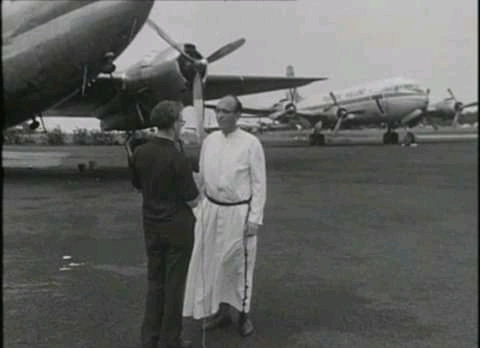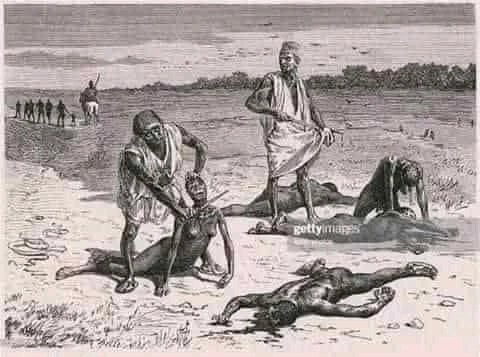profile/9388Screenshot_20220801-004830.png
Movement

Last Fight At Port Harcourt
~2.9 mins read
LAST FLIGHT TO PORT HARCOURT
A ARTUR ALVES PEREIRA EXPERIENCE
The last flight to Port Harcourt before it was captured was my most dangerous experience. Fighting was quite near the airport when I received an urgent note from Doctor Lucy O'Brien. Lucy was a missionary sister who was medical officer-in-charge of the Caritas Medical Programme in Biafra.
'We are simply desperate. It was never worse. No drugs, no bandages, no cotton wool, no syringes. Our hospital floor is covered with dying people. Tony, try to get us some supplies as soon as possible. Lucy.'
I asked many pilots to fly, but they felt it was too dangerous. Eventually a Portuguese pilot, Captain Manuel Reis, came to my Office.
'Tony, I'm ready to risk it. Will you fly with me?
'Of course. Do you think we can me it, Manuel?'
'If we do a spiral landing it will be OK.'
I had no idea what he meant by 'a spiral landing' and somehow I felt sure it would be better for my nerves if he didn't explain. I'd know soon enough.
It was dark when we left São Tomé, no moonlight, a beautiful night for our purpose. Sitting in the cockpit with Manuel as we approached the Biafran coast, the distant shellfire seemed innocent, like shooting stars low on the horizon. As we got closer, the scale of the bombardment became apparent. I had seen anti-aircraft fire, 'flak', many times, but never seen anything like this. The intensity of the bombardment was beyond my comprehension. It seemed impossible that anyone could survive down there.
We saw very heavy fighting some miles from the airport. Manuel studied it for a moment. The responsibility for the decision to continue, or turn back, was his alone. He didn't mince his words: 'Meu Deus! Tony, that's heavy fighting down there.
We'll get closer to the airport before we start the spiral. It will reduce the danger a bit.
Keep cool and keep praying. OK. Here we go!
The horrific memory of what I had seen and experienced during the past few days in Biafra replaced my fears. Those haunting sights would never leave me. The dead and the dying lying everywhere on the streets. The cries of the starving children, the frightening din of exploding shells and rockets and the hopelessness reflected in the sunken of hungry, displaced people. They had moved from one refugee camp to another, trying to avoid the advancing Nigerian army. Now their country was reduced to a small enclave, leaving them nowhere to run, nowhere to escape.
The frightened face of a young boy-soldier lying motionless on an army truck, both legs blown off, was vivid in my mind. I had given him the Last Rites, but beyond that, all I could do was hold his hands as he died. There were other soldiers, too, fleeing from the war-front, throwing off their uniforms from their half-starved bodies, mingling with civilians, hoping to lose their identity.
Thinking of the root cause of this bitter war - the rich oil resources of Biafra - made me fume with anger. This war might never happened if those resources were not there. No one need have died.
My anger deepened as I thought of the countries that had unscrupulously sold or donated military hardware to Nigeria and Biafra. The rockets that had just terrified us at Uli had come from Russian-supplied MiG fighters and British-donated tanks. The bombers, too, had been supplied by Russia. These countries used armaments for their own economic or political gain at the expense of the lives of many innocent people.
No! No innocents need have been sacrificed to these modern cults of oil and greed. The people that want one Nigeria remains greedy and only United for Biafra resources.
"Airlift to Biafra" (Breaching the Blockade) Reverend Father Tony Byrne C.S.Sp
profile/9388Screenshot_20220801-004830.png
Movement

HOW ARABS CAME TO BE IN THE NORTHERN PART OF AFRICA
~0.8 mins read
Arab slavery had already begun in Africa more than 700 years before the European transatlantic slave trade.
The slave trade began when the Arabs invaded North Africa for the first time in the 7th century AD.
The first Arab entry into Africa was through Egypt.
An Arab military general named General Amir Aben Alas invaded Egypt in December 639 AD.
Amir had successfully conquered Egypt and went ahead and conquered other places such as Tunisia and western Libya.
Once these areas had been completely conquered by the Arabs, they imposed tributes of 360 slaves in all regions they occupied and controlled.
With this Islamic slave trade in Africa, North Africans were Islamized by their Arab slave masters.
Today, many Africans pose as Muslims without knowing how the owners of such a religion brutally enslaved their black African ancestors for over 700 years.
Remember that every time you see a modern Egyptian claim to be of North African origin.
Advertisement

Link socials
Matches
Loading...
